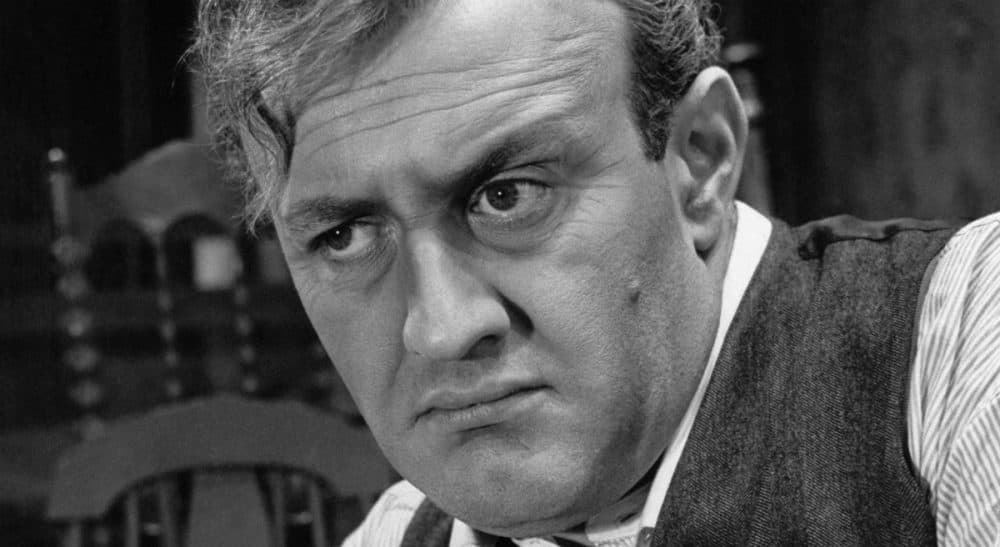Note: If you wish to receive, via e-mail, (1) my weekly newsletter or (2) daily copies of these posts, write to me at [email protected]. Comments may also be sent to this address. I promise not to share your e-mail with anyone. To unsubscribe, write here as well.
Friday
Here’s a comparison I never expected to make: Donald Trump as Willie Loman. A blog post by political scientist John Stoehr about the former president’s dwindling crowd sizes put me in mind of Charley’s famous eulogy at the end of Death of a Salesman. Commenting on the Manhattan trial, Stoehr observes,
The main event isn’t as interesting to me as the smaller moments, like this: Trump has been trying to get more people to show up at his trial. I don’t mean family. (They seem to have given up on him.) I mean people he truly needs. (He seems to believe they love him.) But crowds of “protesters” are shrinking in size as rapidly as crowds at his campaign rallies. It’s a visible sign of dwindling public support. For a showman and con artist like him, that’s unthinkable. So, naturally, he lies.
Here are the words of Willy’s longtime friend, delivered following a putdown by Willie’s oldest son:
CHARLEY: Nobody dast blame this man. You don’t understand: Willy was a salesman. And for a salesman, there is no rock bottom to the life. He don’t put a bolt to a nut, he don’t tell you the law or give you medicine. He’s man way out there in the blue, riding on a smile and a Shoeshine. And when they start not smiling back — that’s an earthquake. And then you get yourself a couple of spots on your hat, and you’re finished. Nobody dast blame this man. A salesman is got to dream, boy. It comes with the territory.
Now, there are many reasons why one dast blame Donald Trump. But a more relevant point is that what Willie’s longtime friend says of him could just as easily be said about authoritarian strongmen: their narcissism craves the adoration of crowds, without which they see themselves as nothing. What Biff says of his father could be said of Trump: “He had the wrong dreams. All, all, wrong,” and “He never knew who he was.”
Like Trump, Willy divides people into winners and losers (and can’t bear it when he realizes he is one of the losers), and he has inflated visions of success. Both men are dreamers. But Willy would never rape women, stiff contractors, or spur people to commit acts of violence. Also he cares about other people, including his family, for whom he commits suicide so that they collect on his life insurance.
The value of applying Miller’s play to our current political situation, I think, is that it helps explain Trump’s extraordinary hold over a large segment of the American population. Death of a Salesman is one of the great literary depictions of the American dream, and Trump’s power lies in his ability to sell a version of that dream to his followers. As a result, they will buy whatever he’s selling and forgive him when they come up empty. Currently he’s out to convince people that they were better off four years ago than they are today, and even though hundreds were dying daily in 2020 while unemployment was skyrocketing, many of them believe him.
Of Willy’s two sons, Biff is the realist, Happy the dreamer. I imagine Biff as Joe Biden, shaking his head as Happy spins fantasies:
BIFF: Why don’t you come with me, Happy?
HAPPY: I’m not licked that easily. I’m staying right in this city, and I’m gonna beat this racket! (He looks at Biff, his chin set.) …
BIFF: I know who I am, kid.
HAPPY: All right, boy. I’m gonna show you and everybody else that Willy Loman did not die in vain. He had a good dream. It’s the only dream you can have — to come out number-one man. He fought it out here, and this is where I’m gonna win it for him.
The odds of Happy ending up as “number-one” are about high as people becoming rich by purchasing stock in Trump’s media company or enrolling in Trump University. But America has always been a country of dreamers—many gambled life and limb to come to this country—and Trump has successfully plugged into their fantasies. For them, he is Willy’s brother Ben, who supposedly went to Africa and came out with diamonds. Conman though he may be, Trump rode his con all the way to the presidency.
I guess what I’m saying is that Charley sees something in Willy’s dreaming that is quintessentially American and that the Biffs of the world fail to appreciate. Unfortunately, when an authoritarian demagogue successfully taps into that dreaming, he can take the whole country down with him.
Maybe instead of comparing Trump to Willy, I should instead say that Trump would probably get Willy’s enthusiastic support. And perhaps drain his bank account in the process.
